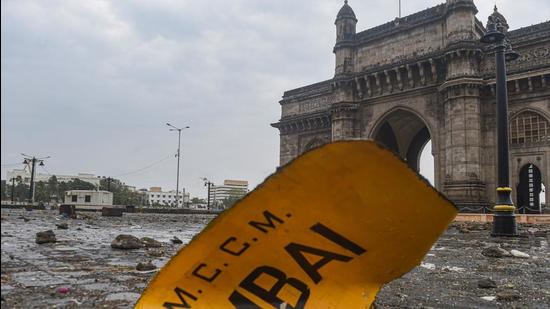India needs a separate ministry to deal with the climate crisis
This is required to chart out a better future for its people and show the world that it is possible to balance between planet, people and profit and, work towards a green growth economy
The Intergovernmental Panel on Climate Change (IPCC) is a body of the United Nations that collects and analyses data on the advancement of the climate change process. IPCC’s reports are assessed frequently and emerge in a broad cycle of five-seven years. The sixth assessment cycle is underway at present. IPCC will release its full report by 2022, eight years after the last report was published. Its first report on the physical science basis of climate crisis is just out after it cleared several rounds of negotiation.

The latest IPCC report showed that in the past eight years, a lot of changes have occurred. Assessing the data from the past three decades, scientists have issued warnings on three key aspects of climate.
One, there isn’t an iota of doubt that human activities are solely responsible for a rapidly changing climate.
Second, the earth’s temperature is increasing at a rate that has not happened in the last 2000 years. Apart from CO2, methane is also pointed out as Green House Gases (GHGs) that is contributing to global warming. This pace and business as usual scenario mean that it would be extremely difficult to keep the earth’s temperature below 1.5°C by end of the century.
Third, this would be the last chance for humanity to keep the world’s temperature limited to 1.5°C since the pre-industrial age. Every fraction of the warming matters for us as global warming is contributing to glacial retreat, rising heat waves, and warming of oceans that feed into the increase in frequency and severity of cyclones.
The next 10 years are crucial for humanity. We must work collectively towards bringing down the emissions and reduce them slowly to make them net-zero by 2050.
Over the past couple of months, India has witnessed some of the extreme weather events which could be attributed to precipitously changing climatic conditions. Be it the Chamoli disaster, the super-cyclones Tauktae and Yaas and extreme precipitation events in some of the states, India is facing severe challenges linked to nearly every climatic parameter.
India’s agro-ecology ranges from desert to cold climatic conditions, from coastal to mountain environments, along with a large pool of semi-arid regions. We are facing challenges in all these zones, be it unpredictable monsoon and floods, sea-level rise, melting Himalayan glaciers, rise in frequency and severity of cyclones, or extreme heat waves.
Unlike earlier, the climate crisis has become a part of mainstream discourse, thanks to some of the extreme weather events experienced in India this year.
When the issues of the climate crisis are at the forefront, why is the climate change division still attached to the ministry of environment and forests? At present, the department acts as a nodal agency that looks after the issues of the climate crisis cooperation, global negotiations, and the National Action Plan for Climate Change. The climate crisis is much more than the environment and forests, and having merely a division or a desk within the ministry will not help the cause.
To minimise the impact of the climate crisis, India needs to focus on adaptation and mitigation efforts simultaneously. Now, to evade climate-related risks, India depends on forecasts and evacuates people. The relief-and-rescue operations are an aftereffect of freak weather events but a lot more work is required to make people adapt to the situation.
It needs coordination with other sectors for effective climate action, including infrastructure, energy, irrigation, water, rural, urban, women and child development. The task is enormous for a country like India with its size and population.
A long-term solution would be in redrawing or rebuilding city plans to make them climate-resilient, in restoring lakes and ponds in urban and rural areas, working towards strengthening natural drainage systems, building storm water systems in urban areas, forest restoration and related climate mitigation efforts. Apart from this, India needs to work with industries and businesses in bringing consensus to achieve net-zero by mid-century.
India must do a lot more to take climate action forward and is poised to be the world’s leader in negotiating the climate crisis in international negotiations. This is especially for the countries of the Global South where there is a leadership vacuum. Some of its work on energy efficiency and initiating the International Solar Alliance show that India has the potential to lead the adaptation and mitigation efforts. But that credibility will come only when we do better in putting our house in order.
All these tasks cannot be handled by having an agency within a ministry. India must create a separate ministry of climate crisis and chart out a better future for its people and show the world that it is possible to balance between planet, people and profit and work towards a green growth economy.
Anjal Prakash is research director at Bharti Institute of Public Policy, Indian School of Business. He is an IPCC’s lead author of the chapter on cities, settlements, and key infrastructure and cross chapter paper on mountains as part of IPCC’s 6th assessment cycle.
The views expressed here are personal.
Continue reading with HT Premium Subscription




